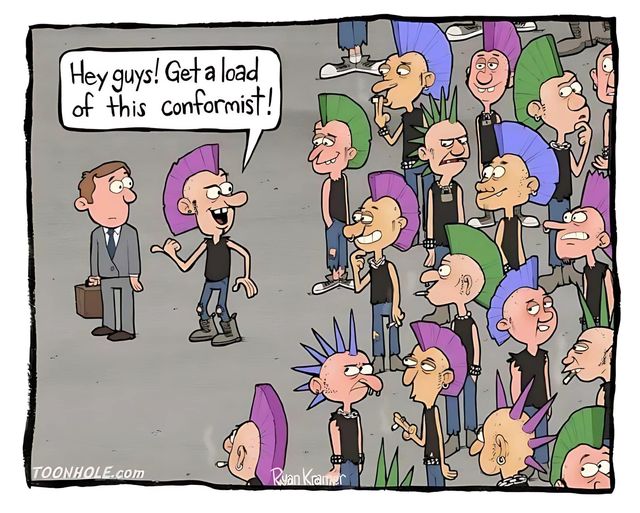If you currently can’t see beyond #mainstreaming then jump anywhere from the #dotcons, a little step is better than non, if you are a bit radical then please think where you are stepping to.
As the world flees from X (formerly #Twitter) to look for viable social media alternatives, platforms like #BlueSky and #Threads come into view pushed by #mainstreaming agendas. But please lift the lid to see that while these platforms appear promising, scrutiny reveals issues with ownership, funding, and community values that show they are on the same #dotcons path that people are fleeing. This compromises long-term independence and user-centricity. In contrast, the #fedivers exemplifies the #4opens principles, a truer, more sustainable #openweb alternative for social networking, it’s here and it works.
- BlueSky’s #VC funded roots, there is a difference between what people say and what they do, this one presented itself as a beacon for decentralized social networking, advocating user control and a light-touch moderation. The project’s founding under Jack Dorsey promised a platform engineered to transcend limitations in social media governance. However, its venture-funded path tells a more conventional story. With investments from entities like Blockchain Capital LLC, co-founded by crypto magnate Brock Pierce, the concerns about centralization are unavoidable. Historically, VC backing brings pressured for profitability and pushes investor interests, at odds with maintaining decentralized, user-first ideals the project keeps talking about. This is a mess soon down the road, it’s a dead-end for people to jump to. For a tech view of this and the VC and culture side. A good tech/social write-up https://dustycloud.org/blog/how-decentralized-is-bluesky/
- Threads is native to the #dotcons and corporate agenda’s. Threads, developed by #Meta (#Facebook), promises much, but it is firmly on the Meta’s path, rooted in data monetization, algorithmic control driving ad revenue. While Threads appears more user-friendly, its development trajectory inevitably follows Meta’s historical focus: ad-heavy strategies and extensive moderation policies that prioritize corporate interests over user freedom they talk about now. And a long writeup How decentralized is Bluesky really? A post on the #dotcons out reach to the #openweb mess. Why is Meta adding fediverse interoperability to Threads?
https://fediversereport.com/why-is-meta-adding-fediverse-interoperability-to-threads/ What is the stress? What is the game? - The #Fediverse and #Mastodon are the #openweb’s champions, built for people, not profit. This path is in stark contrast, firmly, on the path of the openweb. From its decentralized structure to its #4opens open-source foundation. Managed by non-profit people and communerties, funded through voluntary donations and support from like-minded organisations, not venture capital or private investment. This independence ensures that people networking is never beholden to shareholders and subjected to the profit motives that drive centralized platforms. This embodies the principle that social media should amplify what people value, not what maximizes revenue.
Choosing platforms and paths that align with #openweb values is more than just a preference; it’s a stand for a future where digital spaces are driven by #4opens transparency, user empowerment, and shared stewardship. #BlueSky’s reliance on venture funding and Threads’ adherence to Meta’s corporate motives demonstrate the limitations of profit-oriented social media. We need a path where we prioritize community, collective action and autonomy over corporate growth.
In the pursuit of genuine alternatives, platforms like the Fediverse do more than fill the void left by #X; they embody the promise of a decentralized, people first internet—the very essence of the #openweb.

#Openweb: This refers to the original, decentralized ethos of the internet, built on openness, freedom, and people’s autonomy. Linking enhances knowledge sharing, amplifies lesser-known voices, and enables people to explore varied content freely.
#Closedweb: This describes platforms dominated by algorithms, corporate interests, and paywalls. On dotcons, linking is often spam and is penalized or buried, precisely because it can disrupt the curated control these platforms wield over what people see.
Don’t feed the trolls, keeps coming to mind, when looking at the #X influx, this is like waves washing on the shore, be the shore not the waves.